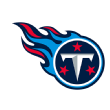It may not seem that difficult to guess which coaches' seats are hottest in the NFL from season to season. But in a sports universe becoming increasingly reliant on data, why should we even have to guess?
There's a machine learning model for that, too.
We taught our model using Pro Football Reference's data on all NFL head coaching tenures since 1979. Unsurprisingly, the most important factor is the team's win-loss record from the present season, but there are a number of other factors that interact with each other within the model:
The degree of decline or improvement from the previous season -- this is almost as important in our model as this year's record. The fact that GMs and owners are much more likely to pull the trigger after a team fails to meet expectations is hardly surprisingly, but it's important to note that a coach who goes from 3-13 to 5-11 is less likely to be fired than a coach who slips from 9-7 to 5-11. Regressing has a bigger impact than overall record.
The next most important factor is the coach's long-term record with the team, represented by his rolling average winning percentage for the past two to five seasons.
Playoff success matters. The model looks at how long it has been since a coach made the playoffs, and the number of seasons since a playoff victory. The recency of a playoff appearance appears slightly more important than that of a playoff win.
Did the current GM hire you? The thinking here is that a general manager (or whoever the hiring and firing authority is) is more likely to cut ties with his predecessor's coaching hire. Coaches have a 25 percent chance of getting fired when working with a GM who didn't hire him, as opposed to 18 percent when the current GM is the one who did.
Tenure has an impact on the model, but not in a straightforward way. Whether you've been the coach for a long time or you just got there, the data still relies on a combination of other factors to determine if your seat should be hotter.
I also included Super Bowl appearances and victories as factors, but they turned out to be the least important among all the factors. Coaches with a Super Bowl appearance or victory on their resume aren't given much extra slack.
Applying this data to last year's group of coaches, Mike McCoy (Chargers), Jeff Fisher (Rams), Gus Bradley (Jaguars), Chip Kelly (49ers) and John Fox (Bears) were seen as the five coaches most likely to be fired heading into the season. Only Fox survived. Fisher and Bradley did not last the season.
For 2017, let's project what would happen if every coach endured a poor season -- say a 4-12 record. Who's most likely to be shown the door in that scenario?

Chuck Pagano, Indianapolis Colts
Record with team: 49-31 in five seasons, 3-3 in playoffs (last appearance: 2014)
Bad 2017 firing probability: 76.0 percent
Pagano will officially have six seasons under his belt after 2017 (closer to five if you don't count the 12 games he missed in 2012 due to cancer treatments). A 4-12 season would leave him with a mediocre long-term record, and he also would have gone three seasons without making the playoffs. Interestingly, Pagano's firing probability takes a hit because GM Ryan Grigson was replaced in the offseason. Pagano and Grigson endured a well-publicized power struggle, which Pagano ultimately won, but the data doesn't think the presence of new Colts GM Chris Ballard necessarily improves Pagano's chances for sustainability.

Mike Mularkey, Tennessee Titans
Record with team: 11-14 in two seasons, 0-0 in playoffs
Bad 2017 firing probability: 72.8 percent
A losing 2017 season would be a severe disappointment in Tennessee. After the Titans went a combined 5-27 in 2014-15, last season's 9-7 showing under Mularkey raised expectations, and a return to the bottom would likely seal the coach's fate. Titans GM Jon Robinson was brought in after Mularkey was handed the head coaching reins midway through 2015, so if you consider removal of an interim tag as a hiring (and our data does), this is an added strike.

Sean Payton, New Orleans Saints
Record with team: 94-66 in 10 seasons, 6-4 in playoffs (last appearance: 2013)
Bad 2017 firing probability: 66.4 percent
If the Saints fail to make the playoffs in 2017, Payton will have the longest playoff drought of any active head coach, at four seasons. Payton's Super Bowl ring isn't likely to buy him much more time in New Orleans.

Jim Caldwell, Detroit Lions
Record with team: 27-21 in three seasons, 0-2 in playoffs (last appearance: 2016)
Bad 2017 firing probability: 65.4 percent
Despite being just one year removed from a playoff appearance, Caldwell would likely find himself out of work if the Lions fall off the charts. A four-win season would represent a large drop from last season's nine-win campaign, and with a different GM in Detroit (Bob Quinn) than the one who hired Caldwell (Martin Mayhew), change would likely be in order.

Bruce Arians, Arizona Cardinals
Record with team: 41-22-1 in four seasons, 1-2 in playoffs (last appearance: 2015)
Bad 2017 firing probability: 65.4 percent
After falling from 13 wins in 2015 to seven last season, a four-win season would represent two consecutive years of significant decline for the Cardinals. Arians has won some big games in Arizona, but the regression would put his job security in serious doubt.

John Fox, Chicago Bears
Record with team: 9-23 in two seasons, 0-0 in playoffs
Bad 2017 firing probability: 65.0 percent
A third losing season would make it 3-for-3 (or is it 0-for-3?) for Fox, and it would be hard to justify keeping him for a fourth year. Oddly, Fox's chances of getting fired would be higher had he won more games last season; a four-win season in 2017 would actually represent an improvement over 2016.

Todd Bowles, New York Jets
Record with team: 15-17 in two seasons, 0-0 in playoffs
Bad 2017 firing probability: 64.8 percent
Bowles is frequently cited as the coach on the hottest of hot seats this season, but that perception may be conflating two different factors. His record indicates he certainly is on thin ice, plus there is a consensus that the Jets are almost certain to struggle to find wins in 2017. Compounding those two considerations means Bowles' chances to remain are far from good, but the data offers a couple of caveats. Like Fox in Chicago, a 4-12 record wouldn't be seen as a wild regression, just more of the same. Also, Bowles' long-term record is buoyed by that 10-win first season of 2015.

Marvin Lewis, Cincinnati Bengals
Record with team: 118-103-3 in 14 seasons, 0-7 in playoffs (last appearance: 2015)
Bad 2017 firing probability: 64.2 percent
The perennial subject of hot-seat talk, Lewis would find it hard to survive a four-win season. Most of the talk centers on Lewis' 14 years in Cincinnati without a playoff win, but the data says it would be a second consecutive losing season, and declining win totals, that would be a bigger factor in Lewis' departure than the postseason issues.
Wait ... what about Hue Jackson?
The most curious result of this exercise was that the Browns' Jackson was considered among the coaches who could most afford a 4-12 season -- the model says he'd have just a 24.4 percent chance of getting the ax if that happened. There's a perception that Jackson has been given a pass for the Browns' lack of talent and perennial low expectations, but the model is unaware of that kind of context. The model would, however, account for the fact that 4-12 would be a three-win improvement, and it likes that GM Sashi Brown remains in place alongside Jackson.
That said, Jackson is only the fourth coach to survive a one-win season since 1979 -- Jimmy Johnson with the 1989 Cowboys, Mike Riley with the 2000 Chargers and Steve Spagnuolo with the 2009 Rams are the others -- which makes it difficult for the model to predict similar cases. Johnson went on to win Super Bowls in Dallas, while Riley and Spagnuolo lasted just one more year each, so there's a pretty wide gulf between those potential outcomes that can call the data into question. We tested several different analytic methods before settling on the most accurate one, and the runner-up version of the model disagrees on Jackson strongly, giving him a 75 percent chance of being let go after a four-win season. No other coach has a disagreement among models that large.
Safe ... but never completely safe
The coaches who would be relatively safe even after a dismal season include Pete Carroll (20.6 percent), Mike McCarthy (20.7 percent), Bill Belichick (25.2 percent), Mike Tomlin (25.3 percent), and Jack Del Rio (25.4 percent). But even they are given up to a one-in-four chance of being replaced after a 4-12 year. As unthinkable as firing Belichick would be after just one four-win season, there are some unique cases that the data accounts for in viewing his situation. The most notable might be Jimmy Johnson, who was exiled from Dallas after winning two straight Super Bowls due to disagreements with owner Jerry Jones.
And it's probably worth bringing up that Jason Garrett's firing probability after a 4-12 season would be just 50.6 percent, which might seem low given the expectations in Dallas and Jones' track record with coaches. But keep in mind that Garrett already survived a 4-12 season, just two years ago, which improves his survival probability and that of every other coach on the list. (Dallas was rewarded with last year's 13-3 mark.)
Every case is unique, and there are important aspects of each that a model can't consider. The value here is a better understanding of the mix of factors that drive decision-makers to fire a head coach.
For more from ESPN Analytics, visit the ESPN Analytics Index.
